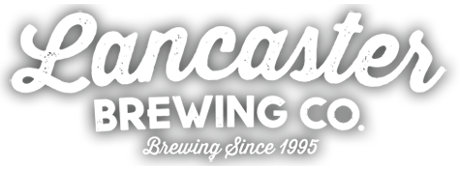By producing Lancaster’s first commercially brewed beer in nearly 40 years, Lancaster Brewing Company has reawakened a rich and colorful brewing history.
Brewing in Lancaster County grew from the back rooms of inns in the early 1700’s into a thriving industry. By 1810, the county accounted for 7% of all beer brewed in the United States.
Before Prohibition, the county’s breweries produced some 200,000 barrels of beer annually. And what beer it was! Lancaster’s quality beers won praise near and far. Beers brewed by Rieker Star Brewery on West King Street were favorites of renowned Baltimore Sun newspaper columnist Henry L. Mencken. In 1868, The Daily Intelligencer newspaper proclaimed, “Lancaster in America occupies the same position that Munich does in Germany in regards to the brewing industry.”The editorial further noted that the fame of our beer has spread over the whole Union.”

Two factors eventually shut down the approximately 14 Lancaster breweries: World War I and Prohibition. Forced by the war effort to curtail the use of coal in the brewing process, Lancaster’s breweries stopped producing beer-legally-in November 1918, well before the 18tht; Amendment went into effect in January 1920.During prohibition, brewing continued under the noses of public officials, many of who had been paid to look the other way. In 1930, however, federal agents began to crack down, and brewing was forced underground-literally. At the corner of W. King and Pine Streets in 1932, a city worker discovered a hose in the sewer. The hose ran from Riekers Brewery (the Blue Star’s currentlocation) to a warehouse on Water Street, where it discharged beer into kegs. News of the operationsbecame widespread.

When Prohibition ended in 1933, Lancaster County breweries resumed legitimate operations, but one by one they bowed to economic pressures’ and competition from major, automated breweries. Lancaster’s last beer was brewed at Wacker Eagle Brewery, which closed in July 1956, and the remaining unpackaged beer was poured into the sewer, beginning a 39-year interruption of Lancaster’s glorious brewing tradition.
In 1995, Lancaster Malt Brewing opened and brought back the popularity of Lancaster-brewed beer. The
business fell under hard times until Lancaster Brewing Company purchased it in 2001. The company has a commitment to quality brewing and operates under Reinheitsgebot, which is a historic German law mandating that only malt, hops, yeast, and water be used for the preparation of beer. Consumers receive only good tasting beer from Lancaster Brewing Company, a Lancaster brewing tradition.


Recent Comments